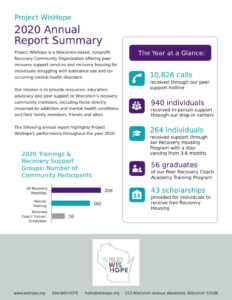You’ve been there before — the desire to use storms back with a vengeance, leaving the recovering individual in a double bind. Mistakenly, many who have never experienced addiction oversimplify the intricacies of breaking from sobriety. Regardless of how deeply an individual cares to avoid relapse, the choice often grinds them between two seemingly equivalent cogs in terms of painful realities.
While the side effects of relapse resonate loudly for recovering individuals and their families, few outside the disorder consider the repercussions coinciding with the choice to prioritize sobriety. Holding onto the private acknowledgment of temptations to use can eat at the stability of mental wellness. Without a trained professional or experienced confidante to share vulnerable moments of unease, the stress of temptation stands to spiral into an echo chamber of stress.
Finding a way to personally incentivize sharing these moments of struggle with people who are equipped to listen and respond can transform the stigma surrounding recovery. Too often, the vulnerability that many addicted individuals shoulder gets buried deep down underneath the fear of judgment and shame. This stigma shrouds the truth of addiction’s unsettlingly pervasive nature. Taking pride in one’s ability to share the struggle with familiar parties makes the choice to stay sober one worth looking forward to, as opposed to a lose-lose situation.
IDENTIFYING MOMENTS OF CRISIS
Before learning to share the pressures and stress of temptation, individuals recovering from alcohol and/or substance use disorder must first recognize the moments in which they experience a crisis. Doing so allows the individual to acknowledge their thought process — frequently kick-started through some mechanism of triggering the addictive cycle — with an increased distance of perspective. Removing the judgment associated with experiencing use disorder from the passenger seat alleviates the blame that many will inevitably place on themselves following thoughts of relapse.
It is important to view every development along the path towards recovery as a learning experience existing outside the “blame game.” While this may initially sound like an indictment to abandon self-awareness in place of a guilt-free lifestyle, embracing the lessons learned through a life of recovery actually thrives through empowering one’s ownership of transgressions. A main source of anxiety stems from worrying about that which we as individuals cannot control. Letting go of that anxiety includes the realization that reaction is one of the few opportunities we have to exercise agency.
TRUSTING IN EXPERIENCE
Sharing the temptation to use alcohol and/or substances is an essential impulse for working through recovery rather than working against recovery. Not every person will be equally equipped to provide the sounding board an addicted individual seeks when experiencing moments of crisis. Without a frame of reference for talking about mental health, individuals may not feel comfortable providing healthy feedback for those in crisis, or even know how to conduct a conversation about mental well-being.
By prioritizing relationships with trained professionals, fellow recovery alumni, or experienced and open friends, those in recovery position themselves in close proximity to the resources best-equipped to strengthen sobriety. Ideally, everyone would know how to help with mental health crises, but this is an imperfect world filled with adults who struggle to formulate helpful advice concerning mental health. It is essential to spend time in the world of mental health advocacy in order to determine which resources may prove beneficial, and which resources may not be best suited for one’s individualized path toward recovery.
PETRIFIED OF CELEBRATION
The conflation of “good times” walking hand-in-hand with alcohol and/or substance use has become a staple of socialization, leaving the concept of celebrating mired in a bodega of triggers and potentially traumatic memories. On the other hand, recognizing a breakthrough — in this instance, communicating the urge to relapse — should be met with excitement and pride. Progressing toward open communication with trusted resources indicates a breakthrough, as this step has often proven to be the difference between sobriety and relapse for so many coping with addiction.
Make a note of these victories. Treat yourself to a surprise, whatever that looks like. Maybe it’s a nice meal. Others might benefit from some additional self-love. Tell yourself that you are proud of the person you are and have worked hard to embody. Feel the reward of confidence in validating your ability to follow through with prescribed goals. If you don’t, nobody else will. That is the bitter irony of use disorder — talking about the condition is one of the best ways to heal and recover from the mental strain, but the surrounding stigma bathes addicted individuals in doubt and self-judgment rather than encouraging conversations. Celebrating your own growth with recovery shatters the enveloping stigma, while inviting others to share the joy of positive change.
The idea of celebrating is a bit of a taboo for those recovering from alcohol and/or use disorder. Whether the temptations triggered through acts of celebration prove too great, or the stigma of use disorder creates an impenetrable wall to discuss the trials of addiction, recovery often lacks the positive reinforcement of celebrating growth. It is important to recognize all forms of personal development, including the strength it takes to acknowledge and fight temptations. Especially now during the pandemic, finding opportunities to share the pride of recovery accomplishments can prove elusive. Seek out the individuals, resources, and communities that encourage continued sober lifestyle choices. We understand that the road to recovery continues endlessly, and we believe every person deserves to follow this path with the help of resources, even after treatment at a facility or recovery home. Don’t wait to get help — call WisHope today at (844) 947-4673.


